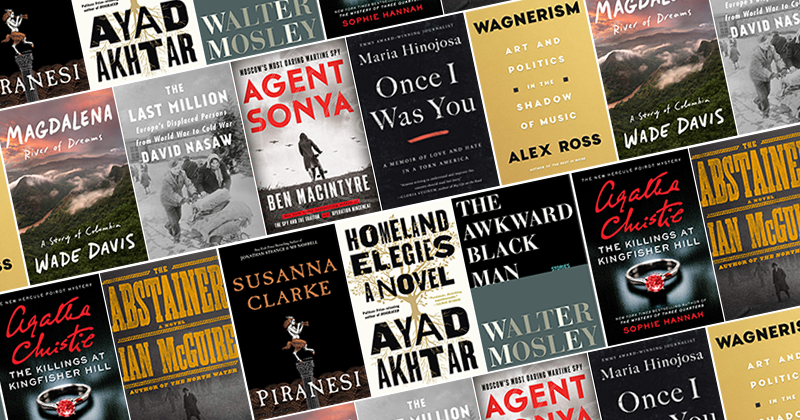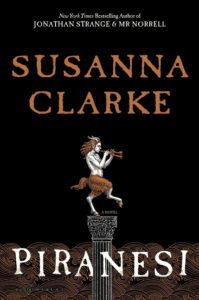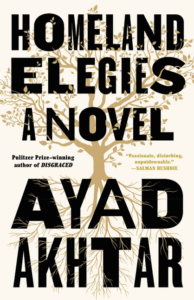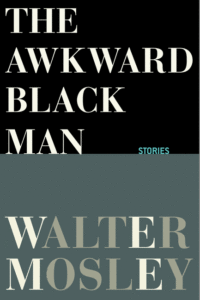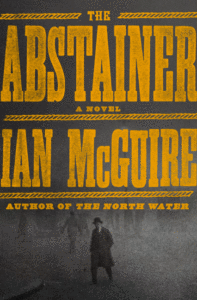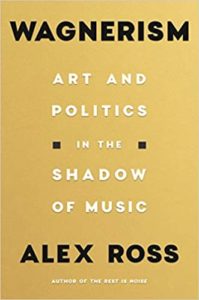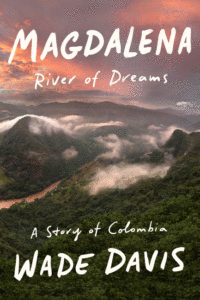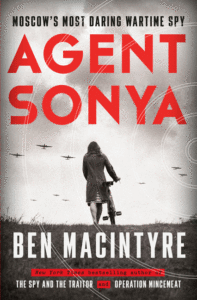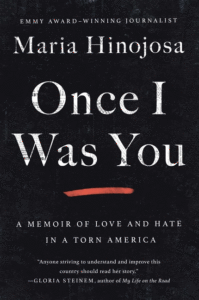Susanna Clarke’s Piranesi, Ayad Akhtar’s Homeland Elegies, Walter Mosley’s The Awkward Black Man, and Ben Macintyre’s Agent Sonya all feature among the Best Reviewed Books of the Week.
1. Piranesi by Susanna Clarke
14 Rave • 5 Positive
“The only way in which Piranesi falls short of its predecessor is length; it spans a pleasingly concise 245 pages. As a work of fiction, it’s spectacular; an irresistibly unspooling mystery set in a world of original strangeness, revealing a set of ideas that will stay lodged in your head long after you’ve finished reading … Where are these southwestern halls? Why did an albatross come to them? And why has the recorder of these events lost access to the standard measure of time? I cannot tell you any of these things, because one of the intense pleasures of Piranesi is making your own guesses, and being proved wrong … Clarke has the same skill Flann O’Brien poured into The Third Policeman for making insane worlds feel as solid as our own. After all that time, she has produced a second novel that is close to perfect.”
–Sarah Ditum (The Times)
Read an excerpt from Piranesi here
2. Homeland Elegies by Ayad Akhtar
14 Rave • 4 Positive
“… remarkable … a phenomenal coalescence of memoir, fiction, history and cultural analysis … One of the most fascinating themes of this tour de force is the sustained tension between memoir and invention that runs through any creative person’s life … Akhtar’s portrait of the artist as a young Muslim exposes both his vanity and his capacity for obsequiousness, particularly around wealthy people … Everywhere one can hear Akhtar’s award-winning ear for dialogue that conveys the unexpected rhythms of conversation and drama. But what’s surprising is his equally engaging mode as a lecturer. Personal episodes mingle effectively with engaging disquisitions on, say, the dilution of antitrust law … paradox runs like a wire through this book, which so poignantly expresses the loneliness of pining for one’s own homeland.”
–Ron Charles (The Washington Post)
Read an interview with Ayad Akhtar here
3. The Awkward Black Man by Walter Mosley
6 Rave • 1 Positive
“Since Walter Mosley published his first book, Devil in a Blue Dress, in 1990, he’s been exposing, dismantling and subverting stereotypes. Race, ethnicity, gender, class—he’s brought a fresh and discerning eye to all of them, in the midst of writing beautifully crafted fiction and thoughtful nonfiction. I can count on his books not only to engage me but to surprise me, and to make me think…He does all that again in his new short story collection … One of the most striking things about this collection of stories is how many of them have happy ending.”
–Colette Bancroft (The Tampa Bay Times)
Read an interview with Walter Mosley here
4. The Abstainer by Ian McGuire
4 Rave • 3 Positive
“It’s great fun … It swerves from comedy to the darker stuff with ease and elegance. It is far from a funny book, but Dickens is there in the language, the coincidences, the unrolling of the story. The grandiosity and ineptitude of the cops and of the Fenians reminded me of Conrad’s The Secret Agent … The dialogue throughout the novel is terrific; it seems like the genuine article whether it comes from an Irish, English or American mouth. McGuire is overfond of similes; there are far too many ‘likes’ in the novel. But often they are great … there was very little I didn’t like and admire about The Abstainer. The conclusion seems inevitable, somehow even more so when it turned out not to be the one I’d been anticipating … This is Dickens in the present tense, Dickens for the 21st century.”
-Roddy Doyle (The New York Times Book Review)
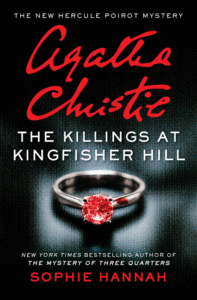
5. The Killings at Kingfisher Hill by Sophie Hannah
3 Rave • 2 Positive • 1 Mixed
“Once again she ably channels Christie and delivers a deftly plotted, pleasingly intricate and thrillingly executed mystery … Hannah keeps her readers on their toes through numerous twists and turns, right up until the trademark drawing-room denouement. We sift clues … We weigh suspects …’Poirot is the finest detective at work anywhere in the world,’ remarks Catchpool at one point. It is good to see that he is still at work, in Hannah’s more than capable hands.”
–Malcolm Forbes (The Minneapolis Star Tribune)
Read Sophie Hannah on the creepiest families in fiction here
**
1. Wagnerism: Art and Politics in the Shadow of Music by Alex Ross
8 Rave • 2 Positive • 3 Mixed • 1 Pan
“… a crowded and mesmerizing history … [a] superb chronicle of obsession, intoxication, hyperbolic exultation, appropriation, exploitation, repudiation, transmutation, and perpetual reinvention—an aerial view of a culture’s nervous system as it responds to an unexpected stimulus. In the end, Wagnerism is, however obliquely, very much a book about Wagner and his music, all the richer for being filtered through such a range of listeners and spectators … As a non-musician myself, I like the importance that Ross places on their reactions, reactions that occur (as his subtitle puts it) ‘in the shadow of music’ … Ross draws on an impressive range of texts, delving particularly deep into the arcana of fin-de-siècle literature.”
–Geoffrey O’Brien (Bookforum)
Read an excerpt of Wagnerism here
2. Magdalena: River of Dreams: A Story of Colombia by Wade Davis
7 Rave • 3 Positive
“Davis is a powerful, penetrating and immensely knowledgeable writer … Madgalena…is very personal. Its three sections…promise a smooth linear ride downriver, but the text is full of mysterious eddies and crosscurrents … ‘living narratives’ are the heart of a book whose final purpose is to ‘celebrate the true wonder of a country that has long been overlooked and misunderstood.’ Passages of description catch the evanescent flavour of towns along the way … Magdalena is steeped in a physical sense of Colombia: the landscapes, the disreputable backstreets, the irrepressibly resilient people. This eclectic log-book of life on the river puts one in mind of Ryszard Kapuściński’s idea of travel writing as ‘authenticated by its being lived’—’you have experienced this event on your own skin, and it is this experience, this feeling along the surface of your skin, which gives your story its coherence.’”
–Charles Nicholl (The Guardian)
Read an excerpt from Magdalena: River of Dreams here
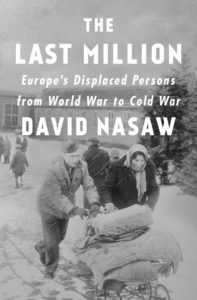
3. The Last Million: Europe’s Displaced Persons from World War to Cold War by David Nasaw
6 Rave
“One of the many virtues of The Last Million is the author’s ability to make vivid sense of a bewildering moment.He clarifies without oversimplifying … Nasaw demonstrates throughout an especially supple sense of scale. Much of what makes the book so absorbing and ultimately wrenching is his capacity to maneuver with skill between the nitty-grittiest of diplomatic (and congressional, military, personal) details and the so-called Big Picture. In cinematic terms, he’s adroit at surveying a vast landscape with a soaring crane shot, then zooming in sharply for a close-up of a single face as it crumples … Among the longest festering of those crises is, of course, Palestine/Israel’s. Nasaw handles deftly the international aspects of this part of the story, in which the fate of that small, troubled piece of land became a ball kicked between England and the United States … The author’s account of the facts on the ground in Palestine/Israel produces the book’s only slight wobble—an uncharacteristic loss of perspective … But these amount to very small quibbles, and The Last Million is greater than they are. Nasaw takes pains to avoid facile comparisons between the history he recounts and the current global moment, with its—our—own seas of refugees. As his calmly passionate book makes plain, however, one would need to be willfully covering one’s eyes not to see how then bleeds into now.”
–Adina Hoffman (The New York Times Book Review)
Read an excerpt from The Last Million here
4. Agent Sonya: Moscow’s Most Daring Wartime Spy by Ben Macintyre
5 Rave • 1 Positive
“We have at last, in Ben Macintyre’s Agent Sonya, the tale of a fully fleshed-out female spy. Not a femme fatale with a tiny pistol in her purse … a real-life heroine worthy of his gifts as John le Carré’s nonfiction counterpart … It boggles the mind how a woman with so many domestic responsibilities—a husband and two children—could find time for spy drops and transmitting coded messages. But Sonya was the consummate multitasker, now cooking dinner, now cooking up explosives to blow up railways. Domesticity was the perfect cover … The flat-footedness and sexism of the British secret services is one of Macintyre’s entertaining subplots … Macintyre gives an enthralling account of the territory that exists between devotion to the cause and sheer love of the game. But hovering over this tale is a question that Macintyre deals with only in passing … Sonya excused brutalities far too lightly, and never disavowed the faith. She sacrificed everything—family, friends and morality—for a dream built on lies.”
–Kati Marton (The New York Times Book Review)
5. Once I Was You: A Memoir of Love and Hate in a Torn America by Maria Hinojosa
4 Rave • 1 Positive
“Hinojosa’s writing is often workmanlike (readers should not come to this book for the pretty prose) but her overall story is compelling, not only for its ability to convey her own life as a survivor of rape and one of the only Latinas in the room during her career, but also in its ability to humanize the history of immigration … Her depictions of the treatment of undocumented individuals moved me to tears, proving her greatest asset is her ability to put a human face on the immigration crisis … a testament to what great journalism can do—leverage privilege and power to tell the stories of those who are voiceless.”
–Anisse Gross (The San Francisco Chronicle)
